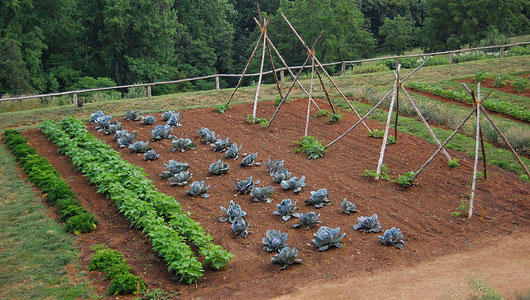New Gardeners
Organic gardening is a goal many people have never take on.
If sustainability and organic gardening are appealing to you, leave a portion of the property you own undeveloped to give wildlife a place to thrive. The kind of birds and insects needed for pollination will be naturally present on your property and help with your organic garden.
Tips on Organic Gardening for New Gardeners
- Plant ever-bearing strawberries for your children. Children love to snap up these sweet juicy fruits for themselves and will be more willing to eat other foods you’ve planted as well.
- After your seeds begin to sprout, they require less warmth than they did prior to sprouting. Keep an eye on your seeds to know when to do this.
- It never hurts to keep a few bags around the house to protect your floors from dirty gardening shoes. Having these available lets you keep your flow in movement, and helps you return to your gardening fast so you can finish up your day.
Adding Mulch
Ensure your soil is health by adding mulch. A couple of inches of mulch will protect what lies beneath it. It keeps the soil cool on very hot days, thus protecting the roots in the ground. It helps the soil retain moisture longer by reducing the evaporation rate. This also helps all the weeds you have stay under control. Adding mulch also gives your flower beds a more aesthetic aspect.
Make sure you work in your garden. Don’t waste time looking for lost tools. Prepare them all ahead of time and have them handy before you need to garden, and then put them away neatly when finished. If you need to use a tool belt, consider using a tool belt or even just some pants that have lots of pockets.
Put coffee grounds on the soil. Coffee grounds have a lot of nutrients that growing plants need.
Take a look below the surface to get a start. When buying tomato seedlings, avoid the ones with a bad root system or green starts. Reason being, these kinds of starts stay attached to the seedlings for many weeks, which causes the seedlings to not grow until the starts are gone.
Spacing is one of the primary considerations when planting an organic garden. You will most likely underestimate how much space the plants need as they begin to grow. Plan your garden carefully and leave enough space between seeds.
Don’t let all the chores for your organic garden pile up. Even if you end up being too busy to do garden chores every day, you can try little things that will prevent you from having a lot of work when you return to your garden. For example, pluck weeds while you take your dog outside or before getting in your car.
 Make sure that you plant your crops in segments at three-week intervals. This helps the entire harvest from being ready at the same time. Additionally, should something happen to during one of your harvests, your tomatoes will not all be ruined.
Make sure that you plant your crops in segments at three-week intervals. This helps the entire harvest from being ready at the same time. Additionally, should something happen to during one of your harvests, your tomatoes will not all be ruined.
Use an old laundry basket to collect your garden. The basket is a great strainer when you wash your vegetables.
When maintaining your organic garden, lightly brush over them using your hand up to twice a day. This may sound strange, but there is research suggesting that it does promote plant growth relative to unpetted plants.
If you’re trying to decide how to water the plants in your organic garden, consider a soaker hose. The water comes out very slowly and evenly, and the hose can be placed exactly where water is needed, such as at the roots. They are better because sprinklers use too much water and hand-watering is too time-consuming.
Create raised beds with stone, bricks or untreated wood. Choose a wood that is resistant to rot and is untreated. Some good choices include locust, cypress, and cypress.In a veggie garden, avoid using treated wood to enclose or demarcate different sections of your vegetable garden.If you have built a bed with treated lumber already, at least take the time to make a plastic lining beneath the soil.
Once you know more about organic gardening, getting started should not be so intimidating. It is relatively easy to have an organic garden, that you can show off with pride. Soon you can have fresh, environmentally-friendly fruits and vegetables on your table.
When you garden, be aware of what you can use. Try using natural alternatives instead of the chemicals you normally use. Compost works great for this. One advantage to using organic gardening methods as opposed to non-organic methods is that non-organic methods have a small chance of reducing soil quality or poisoning the water table.